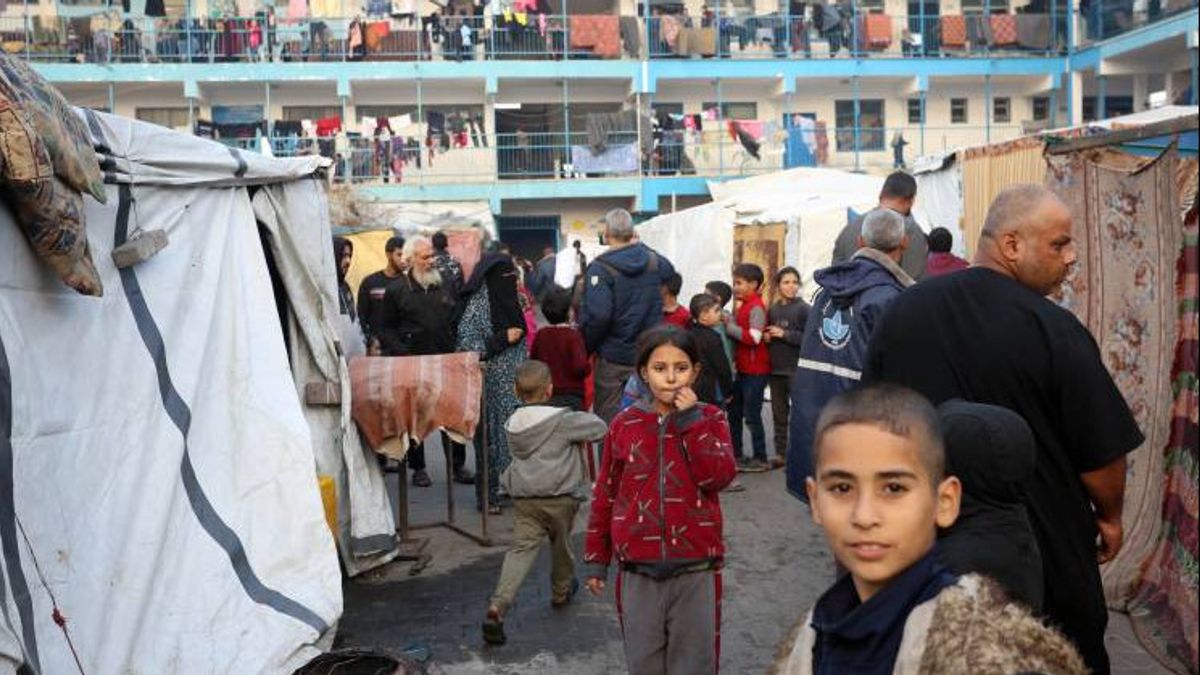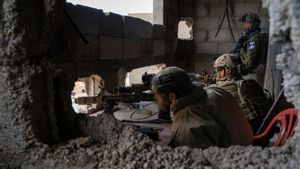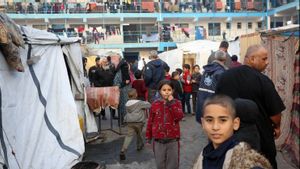JAKARTA - Children in the Gaza Strip may not survive hunger, although they were able to avoid Israeli bombings, as the death toll of Palestinians in the enclave continues to grow, the World Health Organization (WHO) said.
"Children who survived the bombing may not survive hunger. Allow more help for Gaza. Ceasefire," Dr. Tedros wrote on X's social media account, as quoted March 7.
The WHO Director-General's warning was accompanied by a video of testimony from a doctor based in a child unit at Kamal Adwan Hospital in northern Gaza.
"Malnutrition plays a major role in the number of children coming to us and the number of deaths," said Dr. Imad Dardonah in the video, quoted by CNN.
Dardonah further said doctors at her hospital were unable to treat 50 percent to 60 percent of the malnutrition cases they experienced, adding that the only solution they had was to provide the children with salt or sugar.
At least 20 people have died of malnutrition and dehydration since the war began in Gaza, according to the Ministry of Health in Gaza. Of the victims who died, 15 of them were children, the Ministry of Health said.
Meanwhile, Jamie McGoldrick, UN humanitarian coordinator who had just returned from a two-day trip to Gaza, on Thursday warned hunger there had reached a "disaster level."
"Children are dying of hunger," McGoldrick told a news conference, stressing that Israeli-made food delivery restrictions had a bad impact on children's daily lives.
Separately, the death toll of Palestinians as the ongoing Israeli military offensive in the Gaza Strip since October 7, 2023 has risen to 30,800 people, the Ministry of Health said in the enclave on Thursday, quoted by Anadolu.
SEE ALSO:
The ministry's statement added that at least 72,298 people were also injured in the intense attack.
"Many victims are still trapped under the rubble and on the road and rescue teams cannot reach them," the Ministry said.
About 85 percent of Gazans were forced to flee as a result of Israeli attacks amid food shortages, clean water and medicines, while 60 percent of infrastructure in the region was damaged or destroyed, according to the United Nations.
The English, Chinese, Japanese, Arabic, and French versions are automatically generated by the AI. So there may still be inaccuracies in translating, please always see Indonesian as our main language. (system supported by DigitalSiber.id)


















